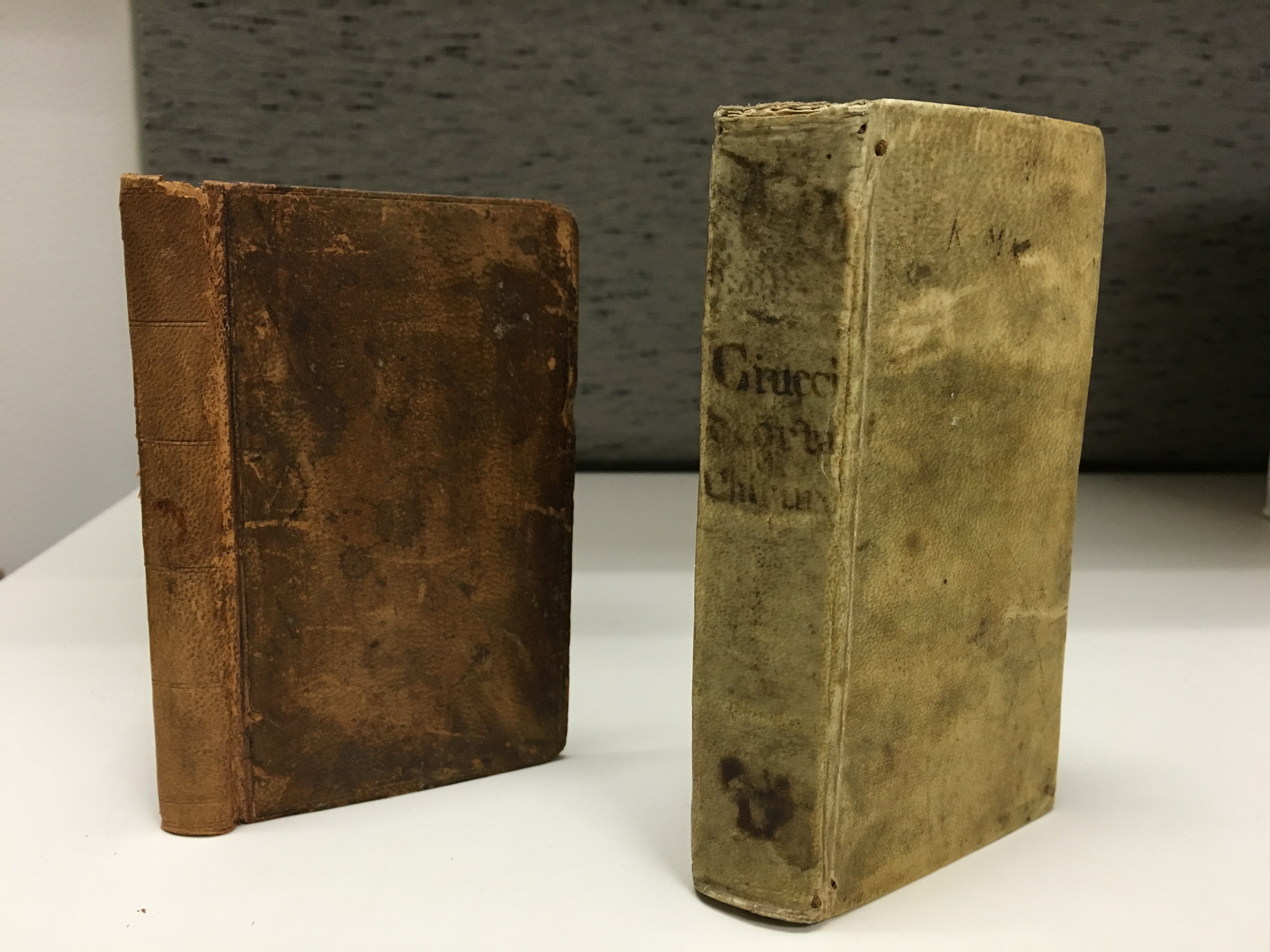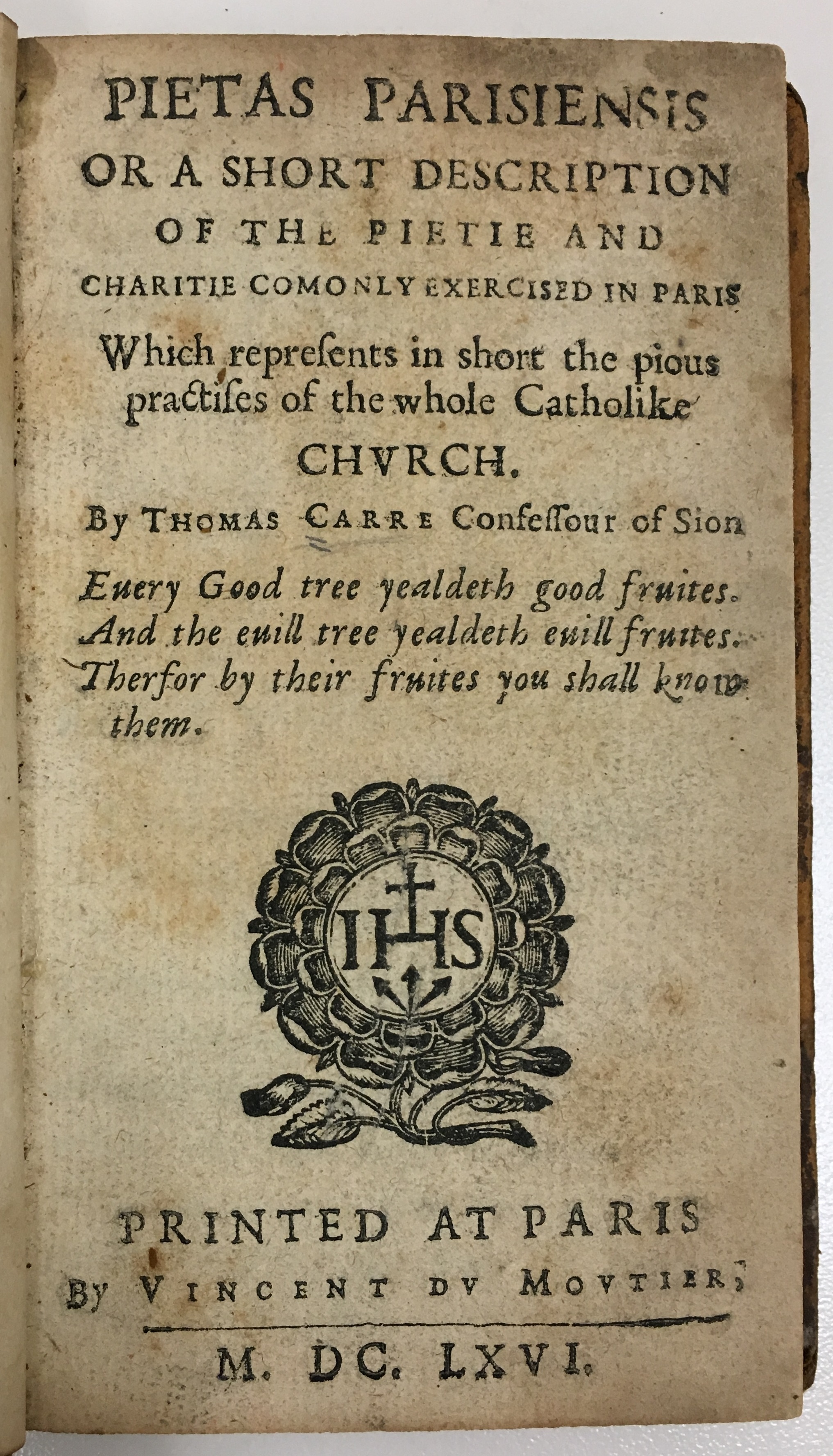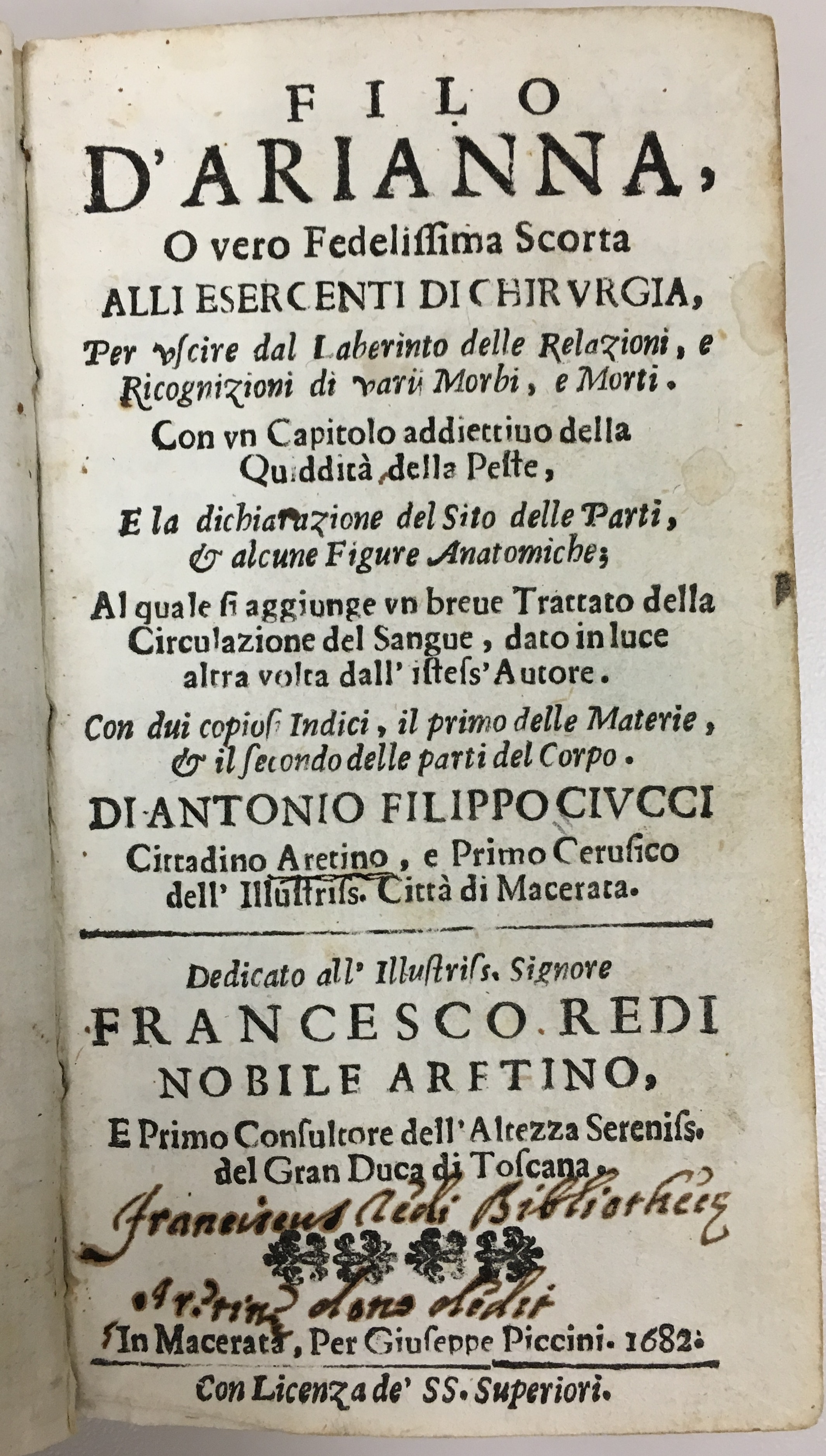by Alex Bádue
The Winkler Center possesses a vast collection of primary sources that include monographs on every branch of medicine and the history of medicine in Cincinnati and in the United States. The scope of these rare books also go beyond medical topics and American borders. Two of these books date back to seventeenth-century Europe, marking some of the oldest books in the Winkler Center primary collection. In their own time, each of these books introduced groundbreaking content that planted the seeds for subsequent development in their respective areas.

Two of the oldest books in the Winkler Center: Thomas Carre’s Pietas Parisiensis (1666) to the left, and Filippo Ciucci’s Il Filo D’Arianna (1682) to the right.
Thomas Carre’s Pietas Parisiensis, Or A Short Description of the Pietie and Charitie Comonly Exercised in Paris, Which Represents in Short the Pious Practices of the Whole Catholike Church was published in Paris in 1666. Carre (1599-1674) was an English Catholic priest who lived in France for most of his life and spoke French fluently. Most of his output concerns the topic of spirituality, and he was the first to translate into English several books and treatises by major seventeenth-century French spiritual writers, such as those by Jean-Pierre Camus (1584-1652) and Cardinal Richelieu (1585-1642), whom Carre knew personally. Carre also worked closely with Richard Smith (1568-1655), Bishop of Chalcedon, the second Bishop of England after Catholicism was banned in 1599. Smith moved to Paris in 1609 where he, too, met Richelieu and lived until his death. In Pietas Parisienses, Carre relates Bishop Smith’s work in aiding the Cardinal Archbishop of Paris. Carre provides a unique description of Parisian life in the seventh century and an account of the religious practices and charity in Paris, which the author believed should have been a model for English Catholics.
Carre’s real name was Miles Pinkney. He was baptized in the Church of England, but reconciled to the Catholic Church as a teenager. He started using the alias Thomas Carre in 1618, when he entered the English College at Douai (in Northern France). He moved to Paris in 1634, where with Richelieu and Bishop Smith, he oversaw the growth of an English-Catholic community.
Antonio Filippo Ciucci (who died in 1710) was and Italian physician of the seventeenth century. He published his book Il Filo D’Arianna in the city of Macerata, Italy, in 1682. This was one of the first treatises on forensic toxicology, i.e., the use of science for criminal and civil laws. This book is also considered the first treatise of legal medicine written in a secular language (ancient Italian) and not in Latin. Its content features original points regarding poisoning diagnosis, which were later furthered by other scientists and toxicologists.
The first part of the book’s long title translates to “The Thread of Ariadne, Or a True Faithfull Provision to Those who Exercise Surgery to Come Out of the Labyrinth of the Relations and Reconnaissance of Various Diseases and Deaths.” In Ancient Greek mythology, Minos, King of Crete, put his daughter Ariadne in charge of the labyrinth where sacrifices were made in honor of greater Gods, such as Poseidon and Athena. Ariadne fell in love with Theseus when he volunteered to kill the labyrinth’s Minotaur. She gave him a sword and a ball of thread so that he could find his way out of the labyrinth. Ciucci believed that his treatise provided enough information and resources for investigators, lawyers, and physicians to solve complicated crime scenes the same way that Ariadne’s thread successfully helped Theseus in his endeavor.


